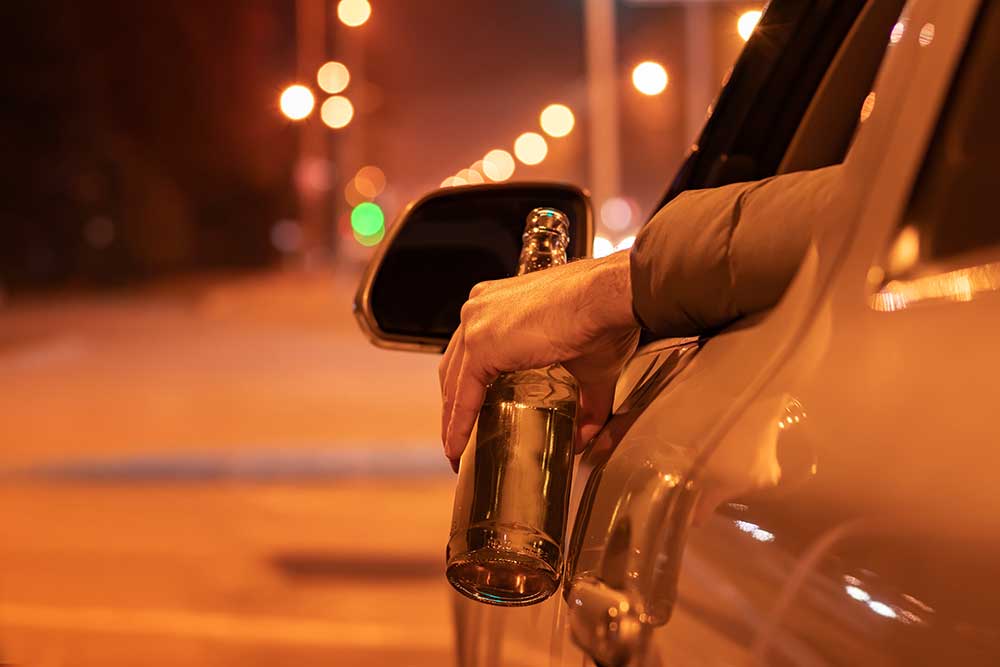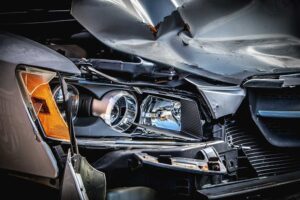Weaver Law Firm can help you through the claims process when you’re hurt in an accident in Rome. It’s true that there’s a lot of different kinds of accidents that could happen to you, but the most frequent is a car accident. Whether it happens on Turner McCall Boulevard, near the intersection by Shorter Avenue, or along Highway 27, the aftermath can be just as difficult as the collision itself. Our team is here to guide you through the process so you can focus on getting better. Set up a free consultation today to get started.

Do You Really Need a Lawyer?
You don’t have to get a lawyer after a car accident, but in many situations, it can make a big difference—especially if your injuries are serious or the accident involves tricky circumstances. Car accidents here in Rome often happen in busy traffic areas, and sorting through the details can be stressful. Add that to doctor visits, car repairs, and endless calls from the insurance company, and it’s easy to feel overwhelmed. That’s where we step in and help by:
- Looking into the accident—whether it happened on a crowded stretch of Broad Street or a rural road outside the city—to find out exactly what happened and who’s responsible.
- Helping you get evidence like police reports, photos, and video footage to strengthen your case.
- Talking to witnesses and local experts who can back up your claim.
- Handling talks with the insurance company so you’re not stuck on the phone arguing about your claim.
- Negotiating for the best possible settlement based on your injuries, lost income, and other damages.
We tailor our approach to you, offering free consultations and working on a contingency fee basis—you don’t pay us anything upfront. But most of all, we want to make things easier for you and your family.
What Are the Different Kinds of Car Accidents That Could Happen to Me in Rome?
In Rome, car accidents can happen anywhere—on the busy lanes of Turner McCall Boulevard, in the shopping traffic along Shorter Avenue, or on the winding roads near Berry College. They often hit when you least expect or afford them, and there’s no guaranteed way to avoid one. Still, knowing the most common kinds can help you be prepared:
- Rear-end collisions
- T-bone or side-impact collisions
- Head-on collisions
- Single-vehicle accidents (where you’re injured as a passenger)
- Multi-vehicle pileups
- Sideswipes
- Parking lot accidents
No matter what type of accident you’ve been in, you have options for getting the support you need to recover. Acting quickly is key to protecting your rights, and our team is here to guide you through every step. And usually, that starts with figuring out who’s responsible.
Who’s Responsible For My Injuries in a Car Accident?
This is probably the most basic question you have after your car accident, and while it’s important, it can also get fairly complicated. Legally, it all comes down to negligence–and that means showing the following
- Duty of care – The other driver (or party) had a legal responsibility to operate their vehicle safely and avoid putting others at risk.
- Breach of duty – They failed to meet that responsibility, such as by speeding, running a red light, or driving distracted.
- Causation – That unsafe action directly caused the accident.
- Damages – You suffered injuries, financial losses, or other harm as a result.
Once these elements are shown, it becomes clearer who may be legally responsible for your injuries and losses. Fault isn’t always one-sided—Georgia law allows blame to be shared among multiple people or groups. Usually, this falls on:
- Other drivers
- Passengers or pedestrians
- Vehicle owners (if they weren’t the driver at the time)
- Car or parts manufacturers
- Government agencies responsible for road safety
- Employers (if a driver was on the job)
Georgia follows a modified comparative negligence rule. This means your eventual settlement could be reduced by your percentage of fault. But this doesn’t take away from your ability to file a claim and get financial support.

How Do I Get Financial Support After My Car Accident?
Liability is only the first part of the claims process when you’re in a car accident. The other–arguably more important part–is actually getting financial support. And to do that, you have to file a claim against whoever was responsible. Usually, this follows one of two paths:
- Filing an insurance claim – Everything starts by filing a claim with the insurance company (the other driver’s, the government, the car owner, or even your own, if your policy applies). They’ll review the accident and decide how much to offer you. Just keep in mind—these offers are often less than what you actually need.
- Filing a lawsuit – If the insurance company won’t offer enough, you may need to take the case to court. This takes longer but can lead to higher compensation. If there’s still no agreement, a judge or jury will decide the outcome.
No matter which path you take, our team will walk you through every step. Keep in mind that Georgia has a two-year statute of limitations for personal injury cases—you have two years from the date of the accident to file. Wait too long, and you could lose the right to bring your claim altogether.
At the heart of either process is the goal of recovering “damages” to cover the ways the accident has affected your life. These may include:
- Medical expenses – This covers all your emergency treatment, hospital stays, surgeries, follow-up care, physical therapy, prescription medications, and any future medical needs related to your injuries.
- Vehicle repair or replacement costs – This pays for fixing or replacing your car, plus related expenses like towing or rental cars.
- Lost wages and future earnings – This gives you financial support for income you lost while recovering, as well as any long-term impact on your ability to work.
- Pain and suffering – This covers costs relating to your physical pain and discomfort caused by your injuries.
- Emotional distress – Similarly, this covers the mental and emotional toll of the accident, including anxiety, depression, and trauma.
- Loss of enjoyment of life or companionship – This comes in when your injuries limit your ability to take part in hobbies, family activities, or your normal daily life.
- Wrongful death expenses – In fatal accidents, this may include funeral and burial costs, as well as the loss of financial and emotional support for your surviving family members.
Your damages will always depend on the specific details of your case. It’s not automatic, but the stronger your claim is, the more you can potentially get back in damages. The key, though, is getting the right information.
What Information Can Strengthen My Car Accident Claim?

When you’re in a car accident, the last thing you’re probably thinking about is a legal claim. This only gets amplified if your accident is more serious, or your injuries are more painful and traumatic. But the reality is that the hours and days after your car accident are going to be pivotal in terms of the information you’re going to be able to get to strengthen your claim. Here’s what to focus on:
- An accident report – An accident report gives an official record of the collision, including the officer’s observations, witness statements, and sometimes an initial opinion on fault. Insurance companies usually have to give this report a lot of weight–even though it can’t technically be used as evidence if you go to court.
- Driver and witness information – Names, contact details, and insurance information help show who all was involved and allow our team to follow up with people who can support your version of events.
- Photos and videos – Photos and videos give a visual record of the crash scene, vehicle damage, and your injuries. They’ll show what happened and counter any disputes from the other side.
- Medical records – Your medical records are going to connect your injuries directly to the accident, proving they weren’t caused by something else.
- Repair estimates and property damage documentation – Written estimates and photos of your car before and after repairs help show the financial impact of the crash beyond just medical costs.
- Consistent statements – Keeping your account of the accident factual and consistent—whether to police, insurance, or in court—reduces opportunities for the other side to challenge your credibility.
- All accident-related paperwork – Saving everything, from bills to insurance emails, ensures no damages are overlooked when calculating your claim’s value.
Even if you can’t collect all of this information yourself because of your injuries, having it in your case file is critical. The more solid, well-documented evidence you have, the harder it becomes for an insurance company to undervalue or deny your claim. And remember, our team will be there to help.
Frequently Asked Questions
What should I do if the other driver doesn’t have insurance?
You can still file an injury claim, but you’ll likely need to go through your own auto insurance policy. This is usually done through your uninsured/underinsured motorist (UM/UIM) coverage.
Do I need to report a car accident to the police?
Yes. Georgia law requires you to report any accident that causes injury, death, or property damage of $500 or more. Even if the damage seems minor, it’s a good idea to make a report to protect yourself later.
How long do I have to file a car accident injury claim?
In most situations, you have two years from the date of the accident to file a personal injury claim. That said, deadlines can vary depending on the details of your case, so it’s smart to get legal guidance as soon as possible.
Get Help From Weaver Law Firm After a Car Accident in Rome
Being in a car accident in Rome can leave you facing painful injuries, medical bills, and a lot of uncertainty. At Weaver Law Firm, we’re here to make things easier. Our team focuses on protecting your rights and making sure you have the strongest possible claim. If you or someone close to you has been hurt in a Rome car accident, we can walk you through your options. Get started today with a free consultation.
